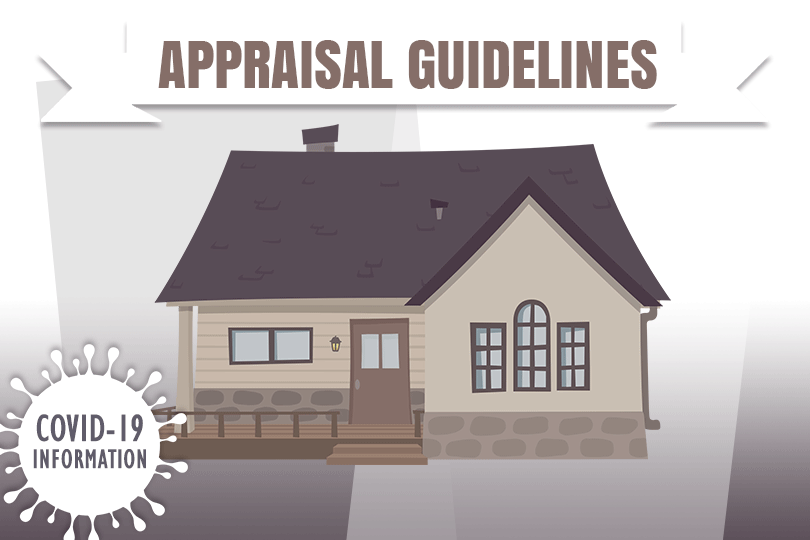What Homebuyers Should Know About Appraisals
March 15, 2021
What Is a Home Appraisal?
Home appraisals are professional, unbiased estimations of a house’s value. They are conducted by licensed appraisers who conduct a thorough inspection of the property to assess its true value, which may or may not be on par with the asking price the seller has set.
Lenders require a home appraisal be conducted before closing to make sure they are not loaning more money than what the house is worth. This is to protect themselves from taking a loss in the case of a foreclosure. If the borrower cannot make payments and defaults on the mortgage, the lender can sell the property to recoup the money they are owed. The appraisal helps lenders ensure that they do not lend more than what they can make back in this scenario.
It is important to remember that an appraisal is NOT the same as a home inspection. The appraisal is required by lenders to protect them for over-lending, whereas an inspection is for the buyer’s benefit. A thorough home inspection gives the homebuyer a thorough assessment of the condition of the house, which includes findings about the heating and cooling systems, plumbing, electrical work, water, and sewage, as well as some fire and safety issues.
How Is a Home Appraisal Done?
For a thorough appraisal report, professional appraisers consider all factors that could possibly affect the market value of a house. The number of bedrooms and bathrooms, updated appliances, type of flooring, etc. can all affect the appraisal. Even the exterior of the house, such as the lot size, landscaping, and upgrades are taken into consideration. Appraisers also include the pricing of recently sold comparable houses in the area in the appraisal of the home.
Why Should Borrowers Care?
If the house you put in an offer on is appraised for more than the asking price, congratulations! You got a great deal! But there is a chance that the house is valued at less than what the seller is asking for. In that case, things get a little more complicated. Even if you have been approved for a mortgage, it is not guaranteed that your lender will loan you the listing price. That decision is based on the appraisal report, not the asking price that the seller sets.
For example, you may be approved for a $200,000 loan, which is the seller's asking price. But the home you are interested in buying is appraised for $160,000, only. Based on the appraisal, your lender can choose to deny you the entire amount you are approved for.
In cases where the home appraisal comes back lower than the asking price, the buyer has three options. They can choose to make up the difference in price themselves with out-of-pocket funds, negotiate a lower price with the seller, or back out of the deal (if there is an appraisal contingency in place).
Regardless of what the property is appraised for, whether you are a repeat or first-time homebuyer, whether you are purchasing or refinancing, a basic understanding of how a home appraisal works will go a long way in helping you navigate the mortgage process smoothly.
Note: In March of 2020, HUD issued a Mortgagee Letter announcing temporary changes to the appraisal requirements for FHA loans that included the ability to have an exterior-only appraisal or a desktop appraisal.
------------------------------
RELATED VIDEOS:
What You Need to Know About the Appraisal Fee
The Appraisal is an Important Requirement
Build Your Dream Home With a One-Time Close Loan

FHA Loan Articles
January 30, 2025FHA residential refinance loans, insured by the Federal Housing Administration, allow homeowners to refinance their existing mortgages. They potentially have more flexible qualification requirements than conventional loans. FHA refi loans can lower monthly payments, shorten the loan term, consolidate debt, or even access cash for home improvements or other needs. Understanding the eligibility criteria and different refinance options is crucial for homeowners considering this option.
January 29, 2025Are you about to graduate from college and are already thinking of what your dream home might look like? Understanding the intricacies of the mortgage is an essential step in your journey toward home ownership. Two key terms you'll encounter early on are "FICO score" and "credit history." How do these two things affect your ability to buy a home?
January 28, 2025Are you dreaming of transforming a diamond-in-the-rough house into your ideal home? Fixer-uppers offer a unique opportunity to personalize your living space and potentially build equity at a price lower than some occupant-ready homes.
January 27, 2025When buying or selling a home, two critical processes are often confused: the appraisal and the inspection. Though both involve a thorough examination of the property, they serve distinct purposes and provide different types of information vital to a successful FHA loan transaction.
January 22, 2025Consider this scenario: you've been in your home for five years or more and you've likely built up a significant amount of equity, and now you might be wondering how to put that equity to work for you. Whether you're dreaming of a major renovation, need to consolidate debt, or want to help a child with college tuition, you have options. Two choices are an FHA cash-out refinance and a home equity line of credit (HELOC).







